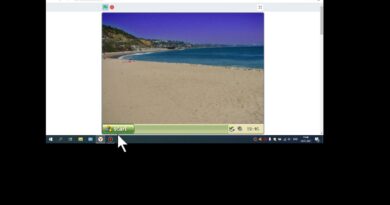gzip file compression in 100 Seconds
Gzip is a file compression tool and popular Linux utility used to make files smaller. Learn how file compression works in 100 seconds.
#linux #compsci #100SecondsOfCode
🔗 Resources
Gzip Docshttps://www.gnu.org/software/gzip/manual/gzip.html
Linux in 100 Seconds https://youtu.be/rrB13utjYV4
Linux Directories Explained https://youtu.be/42iQKuQodW4
🔥 Get More Content – Upgrade to PRO
Upgrade to Fireship PRO at https://fireship.io/pro
Use code lORhwXd2 for 25% off your first payment.
🎨 My Editor Settings
– Atom One Dark
– vscode-icons
– Fira Code Font
🔖 Topics Covered
– What is Gzip?
– How to create a tarball?
– What is end-to-end compression?
– Lossy vs Lossless file compression
– File compression algorithms history
– TAR vs Gzip
by Fireship
linux web server




Please do BitBake in 100 seconds
finally learned what tar is
Super Video………..Thank You So Much Brother………….🙏🏻🙏🏻🙏🏻🙏🏻🙏🏻🙏🏻
I think this video should have included an overview of how DEFLATE works, because even a very general understanding can help you to understand what kind of data compresses well (can easily become orders of magnitude smaller), and what doesn't (might only be a couple percent smaller).
GZIP is better than LLM
the ganew project
there are lots of compression algorithms gzip is the best because is the one that returns the most for your buck, the other algorithms can achieve smaller sizes but will consume a lot more power.
The missing part is how to use it in web
always wondered why TAR and the connection with GZ.
NOT PORN
There are some inaccuracies. I believe that deflate compression comes was either stolen/inspired from lharc or was invented by Phil Katz (PKARC, PKZIP) by some modification to the original code. Mark Alder and the other guy just took deflate compression and used it to replace compress for single file compression, cause TAR is used for metadata on Unix systems (likely becase there were not requirements as storing compressed files directly to a bunch of floppies as on MSDOS machine with small or no harddrive). In simplicity, ZIP is like many gzip files attached to the end of each other with a central directory attached to the end, so it allows to decompress the archive from the start in a sequence or listing it's content and finding specific file to unzip. Tar+gz has better compression, because everything is put together and it compresses repeated patterns across files.
Have watched a lot of your 100 seconds explanation and they are great but I given the nature of this one I thought you might have squeezed it into 50 seconds!!! Keep up the great work and thx!
why don't you just say under 180 seconds ? or the exact time of the video
gRPC in 100 Seconds please!! We’ve started using gRPC at our company and love it, mostly for the type enforcement and reduced payload size thanks to sending information over a binary stream instead of human readable, inefficient-to-parse JSON
gzip => unzip, tar => ?
dot jeezy
I thought "tar" was a decompression command😝
just wondering what terminal are you using
How about one on UPX compression for executables that leaves the exe file as a usable exe file.
And yet the majority of people just run gzip not gzip -9 to use max compression. Also you can use pigz -11 to create an even smaller gzip compatible stream